Class of 2024
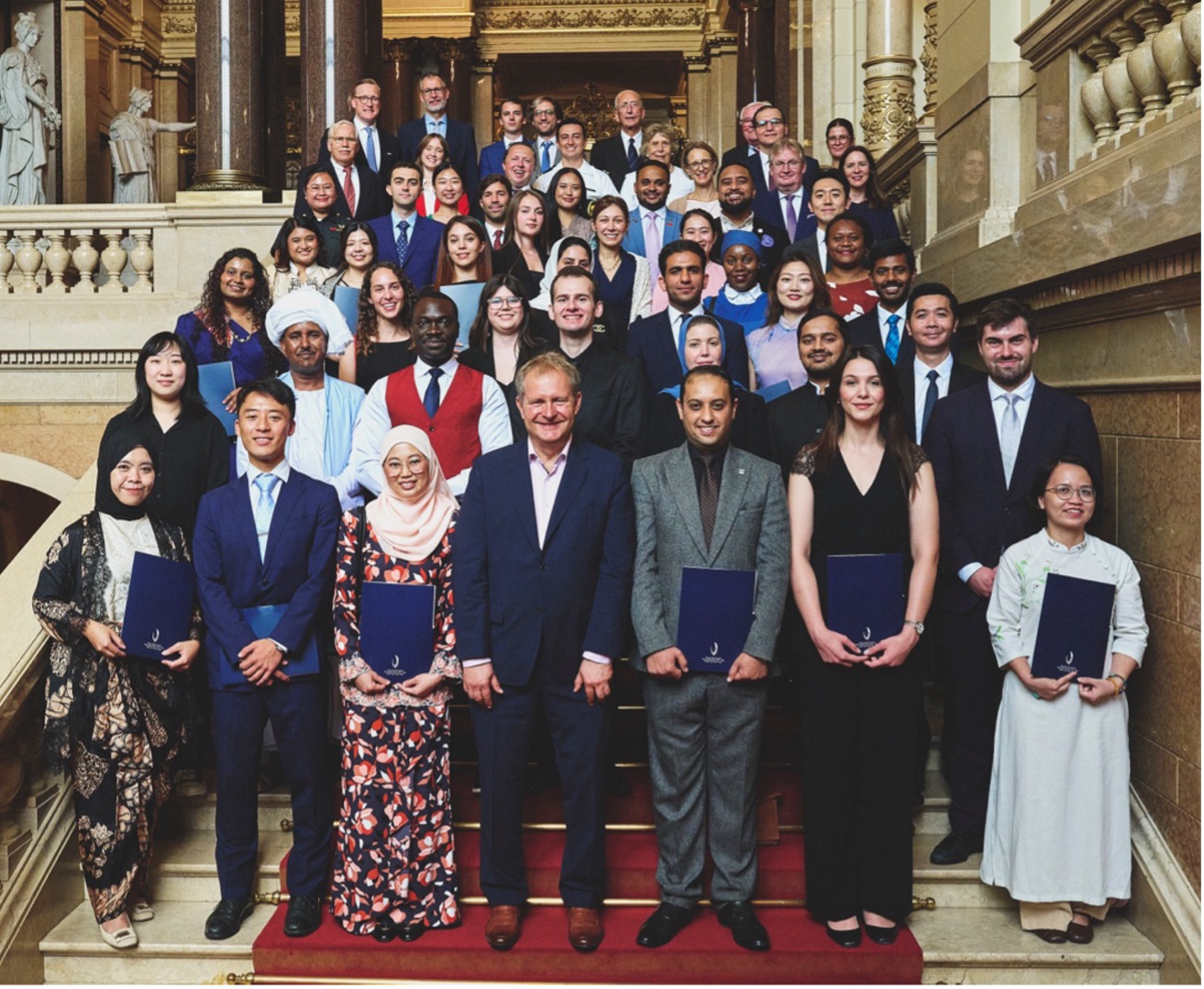
The students of the class of 2024
Our 16th IFLOS Summer Academy
The sixteenth IFLOS Summer Academy was held at the International Tribunal for the Law of the Sea from 27 July to 22 August 2024. As in the past, the event endorsed the overarching theme of “Promoting Ocean Governance and Peaceful Settlement of Disputes”.
Participants
The Foundation welcomed 41 participants from 35 different States from around the world. With participants originating from five counties that had not been represented at the Summer Academy before, our “Global Reach” grew to 139 nations with 566 Alumni on all continents. The Tribunal seconded six attendees within the framework of the Nippon Program, and the Foundation chose 35 participants in cooperation with the Tribunal. Once again, a record number of applications was achieved, with over 130 submissions. As in previous years, the Foundation noted a continued high level of academic qualifications and professional achievement among applicants.
The 2024 session was supported again by the Edmund Siemers-Stiftung and the German Foreign Office (Auswärtiges Amt). Six individual scholarships were granted by the German Shipowners Association (VDR – Michael Behrendt Scholarship), the Hapag Lloyd AG, the Jens-Peter und Betsy Schlüter Stiftung für Schifffahrt und Umweltschutz, the Korea Institute of Ocean Science & Technology, the Rashtriya Raksha University and the Stiftung Maritime Forschung. In addition, the participation of 12 citizens of the South East Asia and South Pacific regions was made possible by scholarships provided by the Foreign, Commonwealth and Development Office of the United Kingdom of Great Britain and Northern Ireland. The Nippon Foundation enabled six other participants to attend the course as a part of their Capacity-Building and Training Programme at the International Tribunal for the Law of the Sea. Finally, grants made it possible to award five other scholarships.
Schedule
Like its predecessors, the 2024 Academy covered a variety of law of the sea, maritime law and related topics, dealing extensively with specific subjects of interest such as marine environmental protection as well as oil pollution and its consequences. Based on the experience from previous Summer Academies, the schedule maintained a specific thematic session on maritime delimitation, where the traditional practical workshop was combined with courses on legal and political solutions.
Faculty
During the four weeks of the program, participants had the opportunity to meet an impressive faculty of over 20 renowned individual personalities willing to share their expertise and experiences on a pro bono basis. The Foundation is incredibly grateful for the invaluable contributions made by the members of the International Tribunal for the Law of the Sea. With President Tomas Heidar, Judges David J. Attard, Ida Caracciolo, Liesbeth Lijnzaad, Frida Armas Pfirter and Helmut Türk, as well as Registrar Ximena Hinrichs Oyarce and Marco Benetar, the Foundation was delighted to record a high number of ITLOS representatives again. Many members of former faculties, consisting of legal and economic experts, natural scientists and experienced practitioners in maritime affairs, were attracted to return to Hamburg and the Tribunal for our opening and closing ceremonies, and the Open Event.
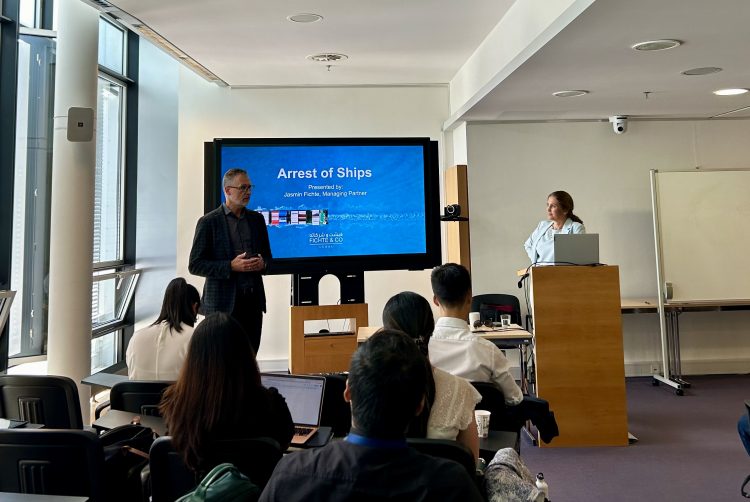 Lecture by Jasmin Fichte
Lecture by Jasmin Fichte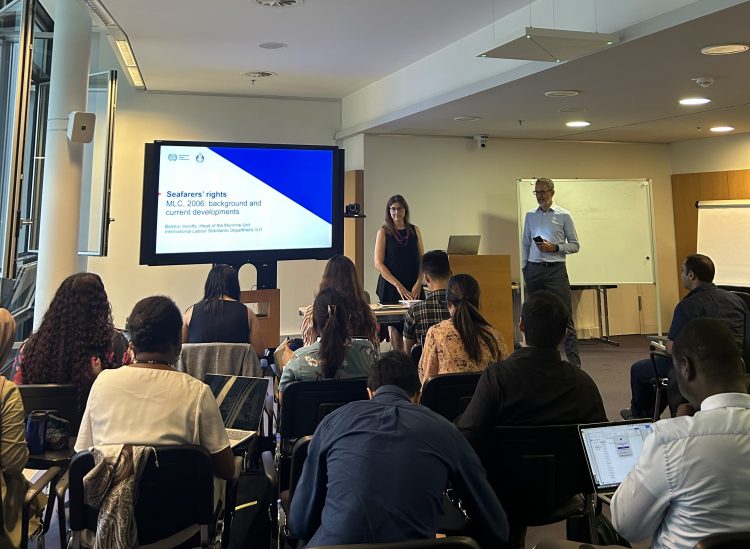 Lecture by Beatriz Vacotto
Lecture by Beatriz VacottoOpen Event
As usual, the Foundation hosted an Open Event during the Summer Academy to invite our community and supporters to discuss one relevant subject on the law of the sea and maritime law. This session’s event focused on “Security at Sea”. The event took place at the main Courtroom of the Tribunal. We were honoured to have two distinguished speakers from the German and Dutch navies who delivered presentations on the latest maritime security issues and legal challenges. The event ended with a panel discussion featuring the CEO of the German Shipowners Association, providing insights from the merchant perspective, and insightful contributions from our participants, who asked several questions to the speakers. The Foundation’s Deputy Chair, Professor Alexander Proelss, moderated the session.
Exam Seminar
Following the system adopted in the previous editions, a mandatory exam seminar was held for the second time instead of the traditional moot court. During the exam seminar, participants had to demonstrate that they had gained distinct knowledge of the law of the sea and maritime law. It took place in small groups of 4 to 5 participants and consisted of Q & A rounds in the form of an “exam conversation”, i.e., questions were passed on from one candidate to another, candidates were able to add to or correct what had already been said, or to develop a topic further when called upon.
Each examination commission consisted of a chair (Judge Helmut Türk, Professor Nele Matz-Lück and Professor Alexander Proelss) and a further examiner (Valentin Schatz, Robert Steenkamp and Maurus Wollensak), both of whom were entitled to ask questions. Each round of examinations lasted around 60 minutes. The candidates were assigned approximately the same amount of time to speak during the exam. The participants’ performance was not graded, and they were notified of passing the exam after their respective rounds. Individual feedback was also provided during the break and after all exams.
Nevertheless, following last year’s success, we offered an optional exam method. In addition to the mandatory exam seminar, the participants could take an additional oral exam to pass with distinction. Therefore, we have received a record of 24 participants who registered for this optional exam and prepared a 15-minute presentation on an assigned research question, randomly chosen between a series of topics studied during the Summer Academy lectures. The participants defended their arguments in a discussion with the examination board and received a final certificate with distinction. The presentation topics were mentioned in the certificates, following a grade awarded for the quality of the discussions.
Extra-curricular Activities
Although the schedule was tight, some time was reserved for extra-curricular activities. Participants had the opportunity to do some sightseeing in Hamburg and its vicinity during a very informative bus tour and a boat tour through Hamburg’s port. The Foundation also organised a trip to the medieval city of Lübeck. The course programme was accompanied by social events such as a “Night Out Bavarian Style” and a visit to the International Maritime Museum.
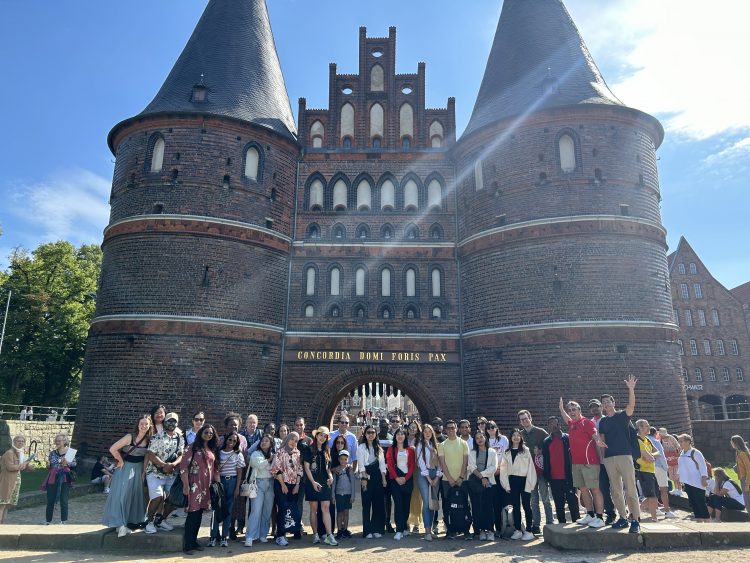 Students in Lübeck
Students in Lübeck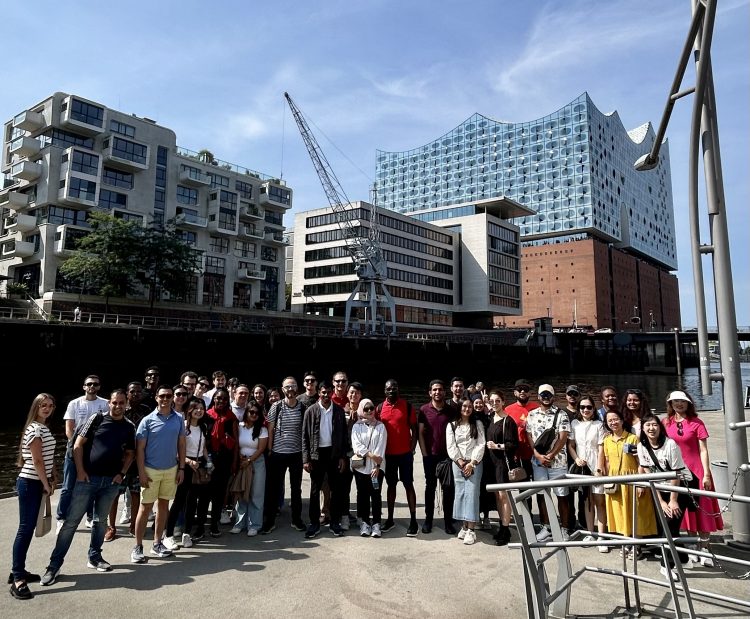 Students in Hamburg
Students in Hamburg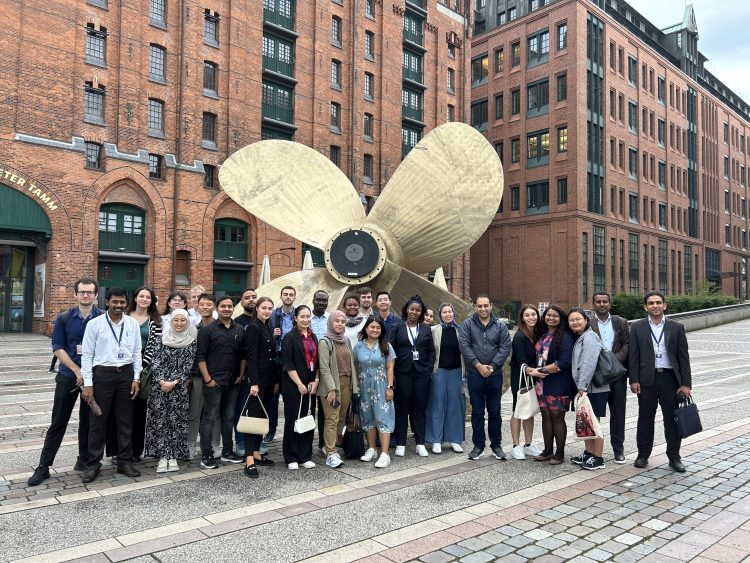 Students in Front of the International Maritime Museum
Students in Front of the International Maritime MuseumSenate Reception
At the end of the Summer Academy, the Senate of the Free and Hanseatic City of Hamburg held an impressive and well-attended reception in the Town Hall hosted by the Senator for the Environment, Climate, Energy and Agriculture, Jens Kerstan, during which the participants received their certificates. For the 16th consecutive year, IFLOS was honoured to be invited to Hamburg City Hall for the graduation ceremony and reception.
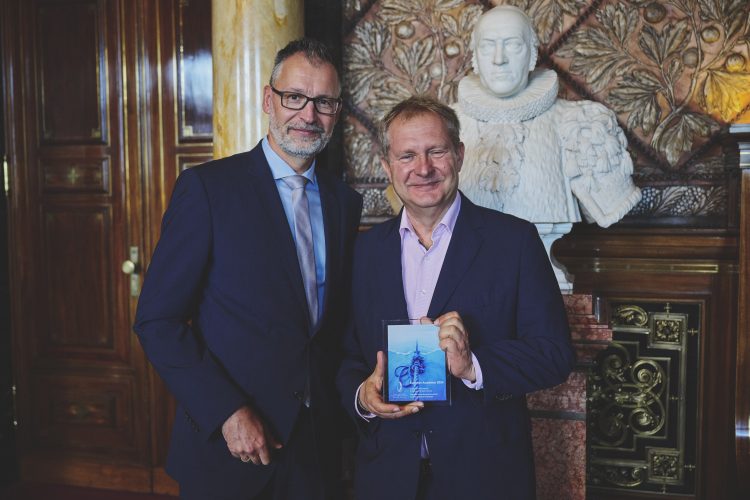 Alexander Proelß and Jens Kerstan
Alexander Proelß and Jens KerstanThank You
The Foundation would like to express sincere thanks to President Heidar, Registrar Hinrichs Oyarce, and all the staff members of the Tribunal who have supported the Foundation team so well before and during the course of the Summer Academy.